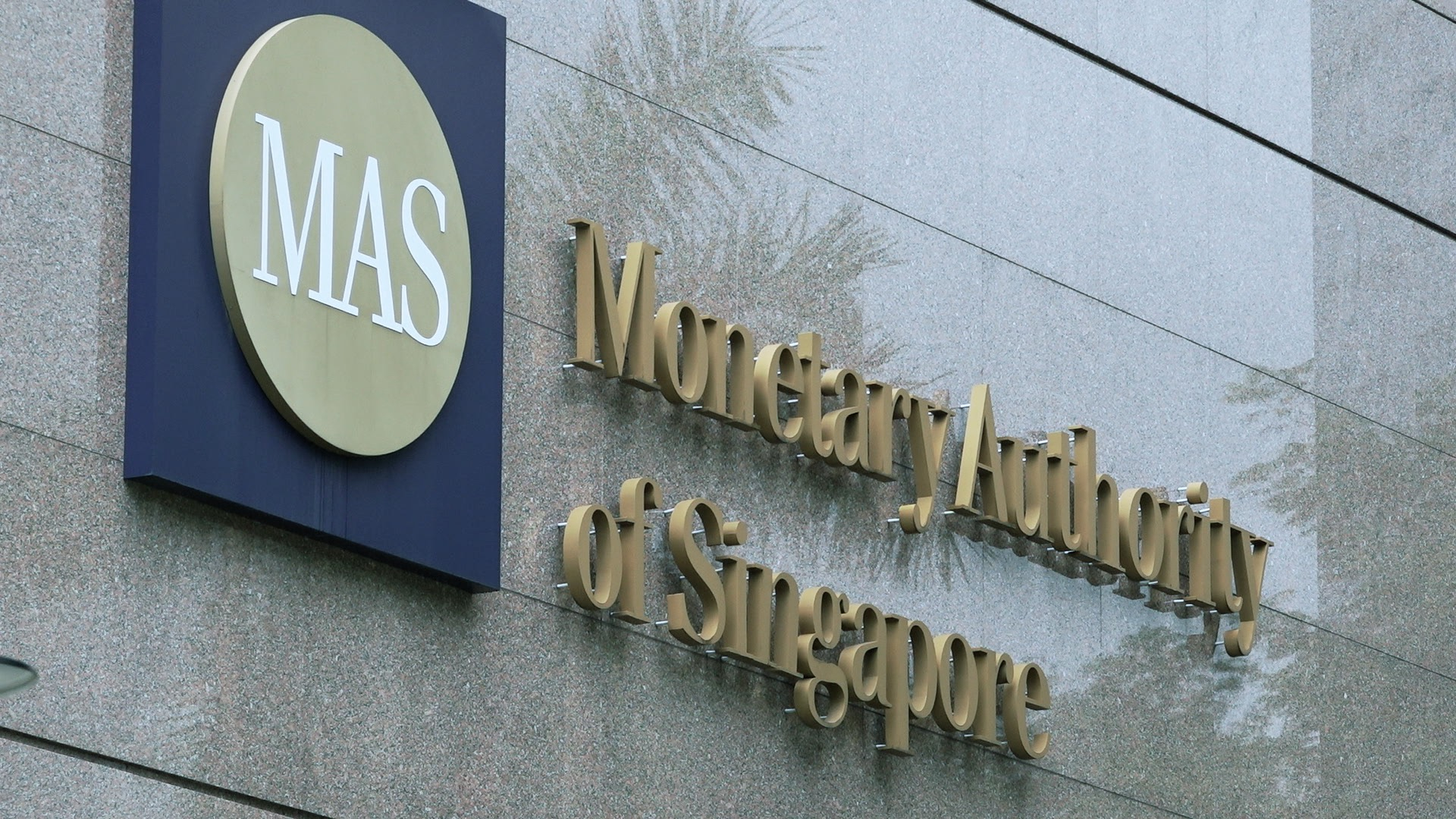Last year, the Monetary Authority of Singapore (MAS) made its first move to shake up the financial services sector in the country by offering up to five digital banking licences. Applications for the licences closed at the end of last year, with MAS announcing at the beginning of this year that it had received 21 applications.
These comprised of seven applications for up to two digital full bank licences, which can serve both retail and corporate clients, and 14 applications for up to three digital wholesale bank licences, which will focus on serving small and medium-sized enterprises (SMEs) and other non-retail segments. The successful applicants will be revealed in June, with operations slated to start by mid-2021.
00:58

A collection of diverse parties are vying for the licences, including Alibaba's Ant Financial as it continues its efforts to expand outside China; a partnership between Southeast Asian ride-hailing giant Grab and Singapore's biggest telecom player Singtel; the Beyond consortium, led by luxury lifestyle and wellness company V3 Group; and card and payments firm, EZ-Link.
Digital banks are expected to introduce fintech tools such as big data, machine learning and artificial intelligence into the local banking system, disrupting the industry and making it more competitive.
Unfortunately, since MAS announced the move to open up the sector to new competition, the city-state, its region and many countries around the world have been unexpectedly affected by coronavirus. In Singapore, this could impact both retail and wholesale digital bank customers, as well as the parties applying for the digital bank licences.
Singapore benefits from a mature financial market and digital-first millennials, who are expected to be the user group to accept and adopt digital banks and products first, in a market of well-banked consumers. However, coronavirus has forced other user groups and generations to become more tech savvy in order to avoid the spread of the virus over the last few months.

The Monetary Authority of Singapore is shaking up the financial services sector in the country. /CGTN
The Monetary Authority of Singapore is shaking up the financial services sector in the country. /CGTN
"Singapore is still a very heavily bricks and mortar retail environment. Still 80 to 90 percent of transactions are done in bricks and mortar stores. That's compared to China where it's probably down to around 50 percent at this point and most of it is shifted online. Coronavirus has pushed more people online in many places, especially here in Southeast Asia. I think we'll see more of that and more comfort with using some of these products and services online. So, very well it could start the trend towards digital banks where people are used to doing their banking more online than they were traditionally," said Zennon Kapron, founder and director of Kapronasia, a financial technology research and consulting firm.
Although retail customers in the country are well-banked, it's the SMEs that are less prolific users of the traditional banking model, that are predicted to benefit the most from new, digital entrants.
"I think, really the underserved segment of the market would be more on the SME side. So, the ability to provide SMEs with funding, and especially now when we're facing the coronavirus at the moment, a lot of these SMEs are struggling to make payments because of the declines in tourism and challenges that they're facing as a result of that. So, it's a great example of where digital banks could come in and really have an impact on the market," said Kapron.
The Singapore Business Federation is a minority partner in the Beyond consortium, which has applied for a full digital bank licence. The federation has twenty-seven thousand members, with most being SMEs. From the organisation's regular surveys, it pinpointed that assembly members have difficulties getting financing from traditional banks without collateral, this has been particularly troublesome during the U.S.-China conflict, and now with the negative economic headwinds from the coronavirus.
Ho Meng Kit, CEO of the Singapore Business Federation, believes that demands from SMEs on digital banks will now become greater. "We see many of our companies in cash-tight situations. I think COVID-19 has made it worse. So, I think the banking needs of the SME community will grow," he said.
"More of the companies particularly in construction, retail, are facing a cash crunch because of the trade conflict. So, really an opportunity in the digital bank is to help our companies with a direct solution," said Ho.

Digital banks could help struggling SMEs raise financing. /CGTN
Digital banks could help struggling SMEs raise financing. /CGTN
In the event of an economic downturn, potentially caused by the coronavirus, new digital banks could face operational challenges. But Ho does not believe that any serious competitor for the digital bank licenses in Singapore will suffer.
"I think it might affect some, because there is a capital requirement. But, if you are really serious about this, this is just a blip and you are in it for the long term. You have to go through the economic cycle and I think it therefore plays to the strength. You've got to have financial muscle, you've got to have sustainability," he said.
Although the coronavirus has had a big impact across the region, experts do not believe that the trajectory or timing of the roll out of digital banks in Singapore will change.
"The government has stated that by mid-year they'll be making decisions on the licenses and then we should start to see some of the digital banks launch, potentially in 2021. So that timeframe will likely continue," said Kapron.
"We know for a fact that even before Chinese New Year, MAS has already been at it. Asking for clarifications from our consortium members on some details of our submission. I think work is going on and certainly we do not expect that there will be a delay to the evaluation and the work process," said Ho.
(Cover: Digital-first millennials are expected to be the first to adopt digibanks in Singapore. /CGTN)